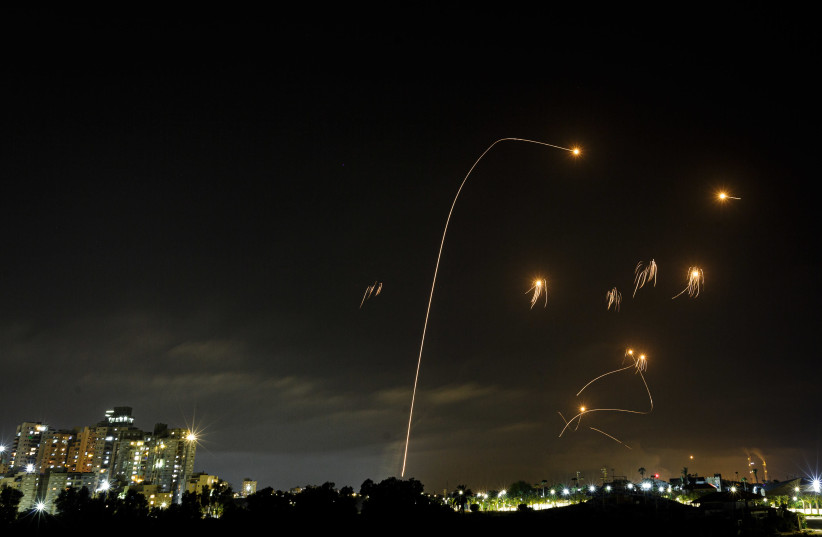‘Is Bulgaria safe?” my daughter asked just before I left for the airport. Our children have reached the age of understanding that the world isn’t safe for Jews – even in our home country of Israel. I assured her there was nothing to worry about. I was headed there for a short trip to perform a Brit Milah, as I’d done there three other times before. But this would be my first visit anywhere since October 7.
Bang! Bang! Bang! The sounds echoed in my hotel room for what seemed like an eternity. This was the last thing I expected to hear during my brief visit. One after another, the sounds broke the silence of Sofia city life. But unlike at home, there were no sirens, no air raid horns before or after, no screeches of ambulances in the streets, and certainly no one injured or dead.
When I inquired about the noise at the front desk, they told me it was fireworks. “At eleven in the morning?” I asked. “Every day is a reason to celebrate,” the man replied.
I couldn’t have felt farther from home.
Life in Israel is a constant bombardment. On any given day or moment, something could be sailing toward Israel.

The most common barrages we face are literal. One night, there was no rocket fire from either the North or South. It’s one of the few times such “peace” has occurred since the war began. But this doesn’t mean things are calming down. Even though that night was quiet, the previous day saw three separate attacks from the North within a span of 20 minutes. And unlike the rocket fire from the South, Hezbollah uses smart weaponry, which leads to many more dead and wounded on our side, as we saw in Margaliot.
As if the rockets aren’t enough to deal with, there are constant stabbings throughout the country. Some leave victims in critical condition, while others end in the death of the teenage-aged assailants. One of the most recent ended in both.
The bombardment we suffer is not only from physical attacks. Interlaced with each bit of tragedy are the unending critiques of our actions.
The most prominent example is the stampede in Gaza, or what I like to call Al-Ahli Hospital, Part Two. While IDF soldiers opened a pathway for aid to reach the Gaza citizens, a mad rush ensued, causing many to be crushed and killed. It was a disaster no one wanted or was happy about. But the news cycle it precipitated blamed Israel for the deaths of the innocents. The claim was that the IDF opened fire on the group. The only problem was the aerial footage refuted the claim almost immediately.
Without hope, fighting for the truth feels like a lost cause
MUCH LIKE the Al-Ahli Hospital incident, the evidence made no difference. The White House issued a statement saying that the incident must be investigated and will complicate the hostage negotiations. It’s amazing how quickly the world forgets how little Hamas cares about its citizenry.
These statements come as nonstop murder is being perpetrated by the other side. In between the US call for investigation and recognition of negotiation challenges, two innocent Jews were gunned down outside of Eli, just north of Jerusalem. The location was the sight of an identical terror attack just eight months prior. The only difference was this time one of the three perpetrators was a Palestinian Authority police officer.
Was there an outcry from the world? Was there even a statement of condemnation of this heinous attack? Of course not. The chastising only goes in one direction and it’s always aimed at Israel.
During all the attempted ceasefire negotiations, we keep hearing the same thing over and over: “Israel must accept the deal.” “Israel needs to do more for a ceasefire.” Do you know how ridiculous it sounds to Israelis as we’re being attacked on all fronts and our citizens are being systematically murdered that we’re being told we’re not doing enough?
Or to hear that the world actually believes that if we signed a piece of paper and agreed to restock our enemy with all of the blood-thirsty terrorists held in our prisons, then maybe there would be peace? It sounds insane. It sounds like you’re ignoring everything happening on the ground or, worse, that you just want us to die.
This constant barrage can be dizzying. One of the only ways I can deal with the chaos is to pray. But even prayer is becoming a challenge at times like these. When I try to focus on all that the Jewish people need, it feels like too much. From praying for the safety and swift return of the hostages to the well-being of our soldiers and the injured and for the strength of all of their families – the list seems always to be growing.
But despite this feeling of inundation, we must press on and never lose hope of reaching a time when every day will be a reason to celebrate.
The writer is a rabbi, a wedding officiant, and a mohel who performs britot (ritual circumcisions) and conversions across the world. Based in Efrat, he is the founder of Magen HaBrit, an organization protecting the practice of brit milah and the children who undergo it.
